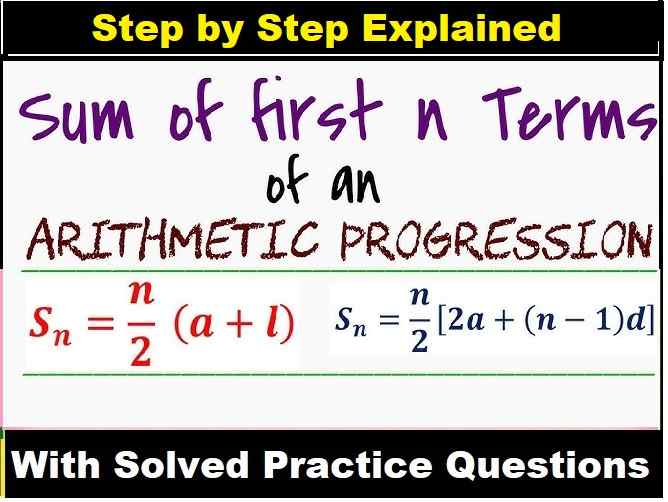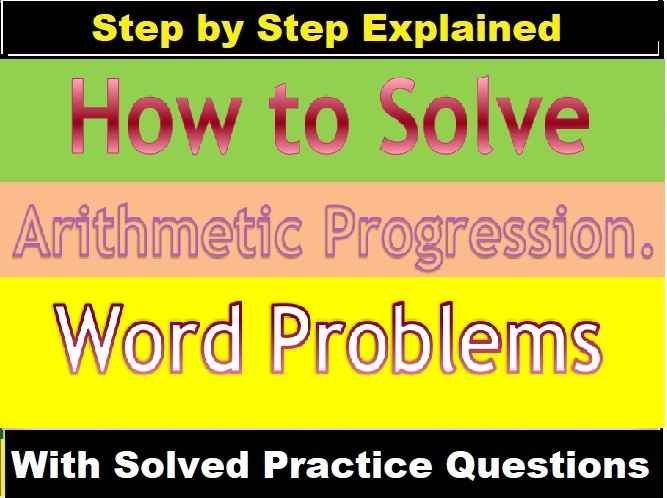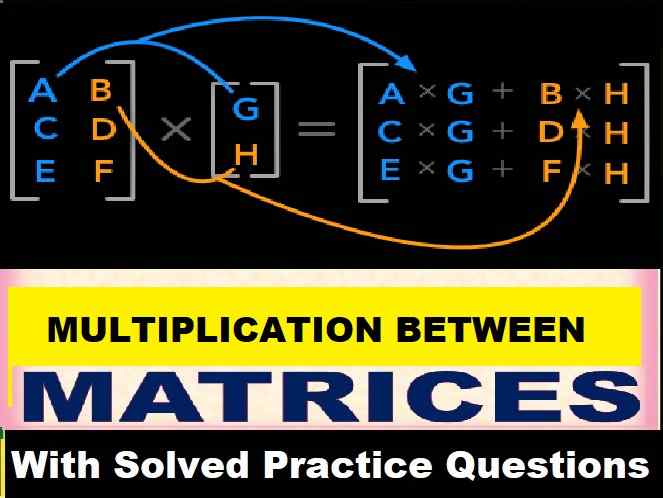Arithmetic Progression Exercise 10C Concise Class-10 ICSE Maths Selina Solution Ch-10. In this article you would learn Sum of n Term of an AP. We Provide Step by Step Solutions / Answer of questions for Selina Concise Maths. Visit official Website CISCE for detail information about ICSE Board Class-10 Mathematics.

Arithmetic Progression Exercise 10C Concise Class-10 ICSE Maths Selina Solution Ch-10
| Board | ICSE |
| Publications | Selina |
| Subject | Maths |
| Class | 10th |
| Chapter-10 | Arithmetic Progression |
| Writer | R.K. Bansal |
| Exe-10C | Sum of n Term of an AP |
| Edition | 2025-2026 |
Sum of n Term of an AP
Arithmetic Progression Exercise 10C Concise Class-10 ICSE Maths Selina Solution Ch-10
Que-1: Find the sum of the first 22 terms of the A.P. : 8, 3, – 2,…..
Ans: A.P. = 8, 3, – 2,…..
Here, a = 8, d = 3 – 8 = – 5, n = 22
∴ S=n/2[2a+(n-1)d]
= 22/2[2×8+(22-1)×(-5)]
= 11[16 + 21 × (–5)]
= 11[16 – 105]
= 11 × (–89) = –979
Que-2: How many terms of the A.P. : 24, 21, 18, must be taken so that their sum is 78 ?
Ans: Let n term of the given A.P. be taken
and A.P. = 24, 21, 18……
Let n be the number of terms.
Here, a = 24, d = 21 – 24 = – 3, Sn = 78
S=n2[2a+(n-1)d]
78=n2[2×24+(n-1)×(-3)]
78=n2[48-3n+3]
156 = n[51 – 3n]
156 = 51n – 3n2
3n2 – 51n + 156 = 0
n2 – 17n + 52 = 0
n2 – 13n – 4n + 52 = 0
n(n – 13) – 4(n – 13) = 0
(n – 13)(n – 4) = 0
n = 13 or n = 4
Que-3: Find the sum of 28 terms of an A.P. whose nth term is 8n – 5.
Ans: nth term (Tn) = 8n – 5
T1 = 8 – 5 = 3
and T2 = 8 x 2 – 5 = 16 – 5 = 11
therefor T3 = 8 x 3 – 5 = 24 – 5 = 19
so A.P. is 3, 11, 19,
hence , a = 3,d = 11 – 3 = 8 and n = 28
The sum of n terms of an A.P. = S=n/2[2a+(n-1)d]
⇒ Sum of 28 terms of an A.P. = 28/2[2×3+27×8]
= 14[6 + 216]
= 14 × 222 = 3108
Que-4: Find the sum of :
(i) all odd natural numbers less than 50.
(ii) first 12 natural numbers each of which is a multiple of 7.
Ans: (i) Sum of all odd natural numbers less then 50
1 + 3 + 5 + 7 +…….+ 49
Here a = 1, d = 3 – 1 = 2
Let n be the number of term, then
49 = a + (n – 1)d
=> 49 = 1 + (n – 1) x 2
=> 49 – 1 = (n – 1) x 2
=> n = 25
Sum of first n terms = S=n2[a+1]
Sum of odd natural numbers less than 50
=> 252[1+49]
=> 252×50
=> 25 × 25 = 625
(ii) First 12 natural numbers which are multiple of 7 are as follows:
7, 14, 21, 28, 35, 42, 49, 56, 63, 70, 77, 84
Clearly, this forms an A.P. with first term a = 7,
Common difference d = 7 and last term l = 84
Sum of first n terms = S=n/2[a+l]
Sum of first 12 natural numbers which are multiple of 7
= 12/2[7+84]
= 6 × 91 = 546
Que-5: Find the sum of first 51 terms of an A.P. whose 2nd and 3rd terms are 14 and 18 respectively.
Ans: Sum of first 51 terms of an A.P. in which T2 = 14 and T3 = 18
d = T3 – T2 = 18 – 14 = 4
and T2 = a + d
=> 14 = a + 4
=> a = 14 – 4 = 10
A.P. = 10, 14, 18, 22,….
Sum of n terms of an A.P. = n2[2a+(n-1)d]
∴ Sum of first 51 terms of an A.P. = 512[2×10+50×4]
= 512[20+50×4]
= 512[20+200]
= 512×220
= 51 × 110 = 5610
Que-6: The sum of first 7 terms of an A.P. is 49 and that of first 17 terms of it is 289. Find the sum of first tt terms.
Ans: Let the first term and the common difference of the given A.P. be a and d, respectively.
Sum of the first 7 terms, S7 = 49
We know
S=n/2[2a+(n-1)d]
7/2(2a+6d)=49
7/2×2(a+3d)=49
a + 3d = 7 …(1)
Sum of the first 17 terms, S17 = 289
17/2(2a+16d)=289
17/2×2(a+8d)=289
a + 8d = 289/17
a + 8d = 17 …(2)
Subtracting (2) from (1), we get
5d = 10
d = 5/10
d = 2
Substituting the value of d in (1), we get
a = 1
Now,
sum of the first n terms is given by
Sn=n/2[2a+(n-1)d]
= n/2[2×1+(n-1)×2]
= n/2[2+2n-2]
= n/2[2n]
= n²
Que-7: The first term of an A.P. is 5, the last term is 45 and the sum of its terms is 1000. Find the number of terms and the common difference of the A.P.
Ans: First term of an AP (a) = 5
Last term = 45
and Sn = 1000
Let there be n terms in this A.P.
Now, sum of first n terms = n/2[a+l]
1000=n/2[5+45]
2000 = n × 50
n = 40
l = a + (n – 1)d
45 = 5 + (40 – 1)d
40 = 39d
d=40/39
Que-8: Find the sum of all natural numbers between 250 and 1000 which are divisible by 9.
Ans: All natural numbers between 250 and 1000 which are divisible by 9 are
252, 261, 270……999
Clearly, this forms an A.P. with the first term a = 252, common difference d = 9 and last term l = 999
l = a + (n – 1)d
999 = 252 + (n – 1) × 9
747 = (n – 1) × 9
n – 1 = 83
n = 84
Sum of first n terms = S=n/2[a+1]
Sum of natural numbers between 250 and 1000 which are divisible by 9
= 84/2[252+999]
= 42 × 1251 = 52542
Que-9: The first and the last terms of an A.P. are 34 and 700 respectively. If the common difference is 18, how many terms are there and what is their sum?
Ans: In an A.P.
T1 = a = 34, l = 700, d = 18
Let n be the number of terms, then
Tn = a + (n – 1 )d
=> 700 = 34 + (n – 1) x 18
=> 700 – 34 = 18(n – 1)
=> 180 – 0 = 666
n – 1 = 37
n = 38
Sum of first n terms = n/2[a+l]
= 38/2[34+700]
= 19 × 734 = 13946
Que-10: In an A.P. the first term is 25, nth term is – 17 and the sum of n terms is 132. Find n and the common difference.
Ans: In an A.P.
First term (a) = 25
nth term = – 17
and Sn = 132
Let d be the common difference
Sum of n terms = 132
n2[a+l]=132
n(25 – 17) = 264
n × 8 = 264
n = 33
Now, l = –17
a + (n – 1)d = –17
25 + 32d = –17
32d = – 42
d = -21/16
Que-11: If the 8th term of an A.P. is 37 and the 15th term is 15 more than the 12th term, find the A.P. Also, find the sum of first 20 terms of this A.P.
Ans: In an A.P.
t8 = 37
a + 7d = 37 …(i)
Also, t15 – t12 = 15
(a + 14d) – (a + 11d) = 15
a + 14d – a – 11d = 15
3d = 15
d = 5
Substituting d = 5 in (i), we get
a + 7 × 5 = 37
a + 35 = 37
a = 2
∴ Required A.P. = a, a + d, a + 2d, a + 3d, …..
= 2, 7, 12, 17, …..
Sum of the first 20 terms of this A.P.
= 202[2×2+19×5]
= 10[4 + 95]
= 10 × 99 = 990
Que-12: Find the sum of all multiples of 7 lying between 300 and 700.
Ans: Numbers between 300 and 700 which are multiples of 7 are as follows:
301, 308, 315, 322, ….., 693
Clearly, this forms an A.P. with first term a = 301, common difference d = 7 and last term l = 693
l = a + (n – 1)d
693 = 301 + (n – 1) × 7
392 = (n – 1) × 7
n – 1 = 56
n = 57
Sum of first n terms = S=n/2[a+l]
Required sum = 57/2[301+693]
= 57/2×994
= 57 × 497 = 28329
Que-13: The sum of n natural numbers is 5n² + 4n. Find its 8th term
Ans: Sum of n natural number = 5n² + 4n
Sn = 5n² + 4n
S1(a) = 5 x (1)² + 4 x 1
= 5 + 4 = 9
S2 = 5(2)² + 4 x 2 = 20 + 8 = 28
S2 – S1 = T2 = 28 – 9 = 19
=> a + d = 19 => 9 + d = 19
d = 19 – 9 = 10
a = 9, d = 10
T8 = a + (n – 1 )d = 9 + (8 – 1) x 10
= 9 + 7 x 10 = 9 + 70 = 79
Que-14: The fourth term of an A.P. is 11 and the eighth term exceeds twice the fourth term by 5. Find the A.P. and the sum of first 50 terms.
Ans: In an A.P.
T4 = 11
T8 = 2T4 + 5
Now, a + 3d = 11
a + 7d = 2 x 11 + 5 = 22 + 5 = 27
Subtracting, 4d = 16
d = 4
Substituting d = 4 in equation ,we get
a + 3d = 11
a + 3 × 4 = 11
a + 12 = 11
a = –1
∴ Required A.P. = a, a + d, a + 2d, a + 3d, ….
∴ a = –1
∴ a + d = –1 + 4 = 3
∴ a + 2d = –1 + 2(4) = –1 + 8 = 7
∴ a + 3d = –1 + 3(4) = –1 + 12 = 11
Sum of first 50 terms of this A.P.
=50/2[2×(-1)+49×4]
= 25[–2 + 196]
= 25 × 194
= 4850
–: Arithmetic Progression Exercise 10C Concise Class-10 ICSE Maths Selina Solution Ch-10 :—
Return to :- Selina Concise Solutions for ICSE Class-10 Maths
Thanks
Please Share with Your Friends


